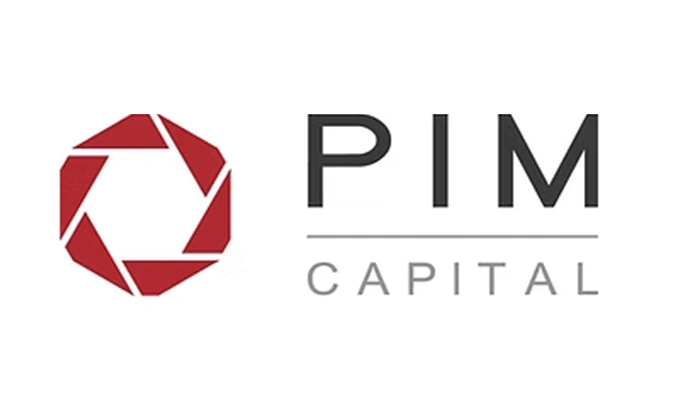Unlock the capital within your supply chain

John E. Kaye
- Published
- Banking & Finance, Home, Uncategorized

Banks can use supply chain finance to offer a lifeline for businesses during economic uncertainty, says Maurice Benisty of Demica
As macroeconomic conditions remain difficult and far from predictable, businesses are looking to banks for support in managing their liquidity and cash flow. The era of quantitative easing and extensive liquidity injections by central banks has come to a halt, with high levels of inflation persisting in developed economies. Meanwhile, climate change and global political tensions add further strain.
An examination of more recent downturns underlines the critical importance of optimising working capital for businesses operating in such conditions by truncating the cash conversion cycle. The current tightening economic factors are no different, driving corporate treasurers to seek more cost-effective financing options. Banks need to be ready with solutions to help.
Not so long ago, banks might have struggled to come up with an effective solution that met clients’ needs. What was available was time-consuming and unlikely to provide a good customer experience for under-pressure corporate treasurers. Banks’ options have now changed significantly. Technological advances are enabling them to play a pivotal role and take the initiative to create new and substantial opportunities that solidify long-term relationships.
Transformative products and services
What is increasingly high on the agenda is supply chain finance, as awareness grows of innovation in products and services that are transforming this sector. Chief Financial Officers and corporate treasurers recognise the potential of supply chain finance to unlock capital within their intricate supply chains in periods of turbulence. For banks’ trade teams, this presents a significant opportunity, especially as overall liquidity becomes more constrained and investors gravitate towards lower-risk assets.
Trade finance, in general, remains a low-risk asset class for funders due to its short-term maturity, self-liquidating nature, low market correlation, and historically low default rates. Demica’s research among global banks – our ‘2023 Benchmark Report for Banks in Trade Finance’ – shows inflation in some regions has even driven growth in trade finance, despite ongoing geopolitical tensions like the Ukraine conflict.
Many established banks are already working to seize a slice of the rapidly growing supply chain finance market. Forward-thinking institutions such as HSBC, Lloyds Bank, and Standard Chartered are making substantial investments in technology and cultivating fintech partnerships to scale their supply chain finance solutions and offer advanced funding options.
By enhancing customer experiences with quicker, less cumbersome, and more transparent processes, banks can tap into significant new revenue streams and foster lasting customer relationships. Our research among banks indicates that more than 60% of them anticipate replacing existing technologies within five years. More than a quarter (26%) foresee trade receivables discounting as the area with the highest growth potential for their organisations, with 15% pointing to trade receivables securitisation.
Banks armed with advanced supply finance solutions can efficiently process high volumes of invoices and provide a flexible array of options to cater to corporate requirements in an unpredictable world. Their decision-making processes become significantly faster, positioning them to drive the real economy forward during uncertain times, ensuring major companies have the essential access to cash they need.
Competing with rapid digitisation
However, the reality for many banks is significantly different, grappling with outdated, highly inflexible technology, much of which is close to obsolescence. This continues to put them at a disadvantage in today’s world of rapid digitisation where nearly every multi-national industry is racing to create new products and services. It is also a significant drawback when the entire financial services sector is under scrutiny by government regulators eager to foster competition through open data and technology-driven innovation.
As these pressures and opportunities gather momentum, banks should fully embrace supply chain finance and cultivate strategic partnerships with technology providers. Banks possess extensive experience in creating and delivering financial products and services, along with expansive networks of customers and commercial relationships. These assets give them a competitive edge over fintech competitors and non-bank funders seeking entry into the supply chain finance market.
Signs of change are already emerging, with banks streamlining their cumbersome procurement processes as they acknowledge the need for action on multiple fronts. The potential for supply chain finance is immense, but to establish a significant foothold in the market, banks must choose the right partnerships and platforms.
As conditions in the global economy make trade tougher and demand less predictable, banks should be in pole position to empower corporate treasurers and finance leaders with a faster, more effective and tailored supply chain finance solution, shortening the cash conversion cycle.
For banks’ clients, it will mean their businesses are far better protected from the prevailing economic financial headwinds, enabling them to thrive as other competitors fall back. Just as importantly, more advanced supply chain finance will enable banks to continue growing their business by creating and sustaining longer-term relationships with leading global businesses for whom these solutions are key.
About the Author

Maurice Benisty is Chief Commercial Officer at Demica.
RECENT ARTICLES
-
 Managing cross-border risks in B2B e-commerce
Managing cross-border risks in B2B e-commerce -
 J.P. Morgan launches first tokenised money market fund on public blockchain
J.P. Morgan launches first tokenised money market fund on public blockchain -
 Aberdeen agrees to take over management of £1.5bn in closed-end funds from MFS
Aberdeen agrees to take over management of £1.5bn in closed-end funds from MFS -
 Enterprise asset management market forecast to more than double by 2035
Enterprise asset management market forecast to more than double by 2035 -
 EU Chamber records highest number of entries for 2025 China Sustainable Business Awards
EU Chamber records highest number of entries for 2025 China Sustainable Business Awards -
 Inside Liechtenstein’s strategy for a tighter, more demanding financial era
Inside Liechtenstein’s strategy for a tighter, more demanding financial era -
 ‘Stability, scale and strategy’: Christoph Reich on Liechtenstein’s evolving financial centre
‘Stability, scale and strategy’: Christoph Reich on Liechtenstein’s evolving financial centre -
 Bridging tradition and transformation: Brigitte Haas on leading Liechtenstein into a new era
Bridging tradition and transformation: Brigitte Haas on leading Liechtenstein into a new era -
 Liechtenstein in the Spotlight
Liechtenstein in the Spotlight -
 Fiduciary responsibility in the balance between stability and global dynamics
Fiduciary responsibility in the balance between stability and global dynamics -
 Neue Bank’s CEO on stability, discipline and long-term private banking
Neue Bank’s CEO on stability, discipline and long-term private banking -
 Research highlights rise of 'solopreneurs' as technology reshapes small business ownership
Research highlights rise of 'solopreneurs' as technology reshapes small business ownership -
 Philipp Kieber on legacy, leadership and continuity at Interadvice Anstalt
Philipp Kieber on legacy, leadership and continuity at Interadvice Anstalt -
 Building global-ready funds: how South African managers are scaling through offshore platforms
Building global-ready funds: how South African managers are scaling through offshore platforms -
 Global billionaire wealth hits record as relocation and inheritance accelerate, UBS finds
Global billionaire wealth hits record as relocation and inheritance accelerate, UBS finds -
 Human resources at the centre of organisational transformation
Human resources at the centre of organisational transformation -
 Liechtenstein lands AAA rating again as PM hails “exceptional stability”
Liechtenstein lands AAA rating again as PM hails “exceptional stability” -
 Lusaka Securities Exchange surges ahead on reform momentum
Lusaka Securities Exchange surges ahead on reform momentum -
 PROMEA leads with ESG, technology and trust in a changing Swiss market
PROMEA leads with ESG, technology and trust in a changing Swiss market -
 Why collective action matters for pensions and the planet
Why collective action matters for pensions and the planet -
 Structuring success with Moore Stephens Jersey
Structuring success with Moore Stephens Jersey -
 PIM Capital sets new standards in cross-jurisdiction fund solutions
PIM Capital sets new standards in cross-jurisdiction fund solutions -
 Innovation, advisory and growth: Banchile Inversiones in 2024
Innovation, advisory and growth: Banchile Inversiones in 2024 -
 Digitalization, financial inclusion, and a new era of banking services: Uzbekistan’s road to WTO membership
Digitalization, financial inclusion, and a new era of banking services: Uzbekistan’s road to WTO membership -
 Fermi America secures $350m in financing led by Macquarie Group
Fermi America secures $350m in financing led by Macquarie Group



























